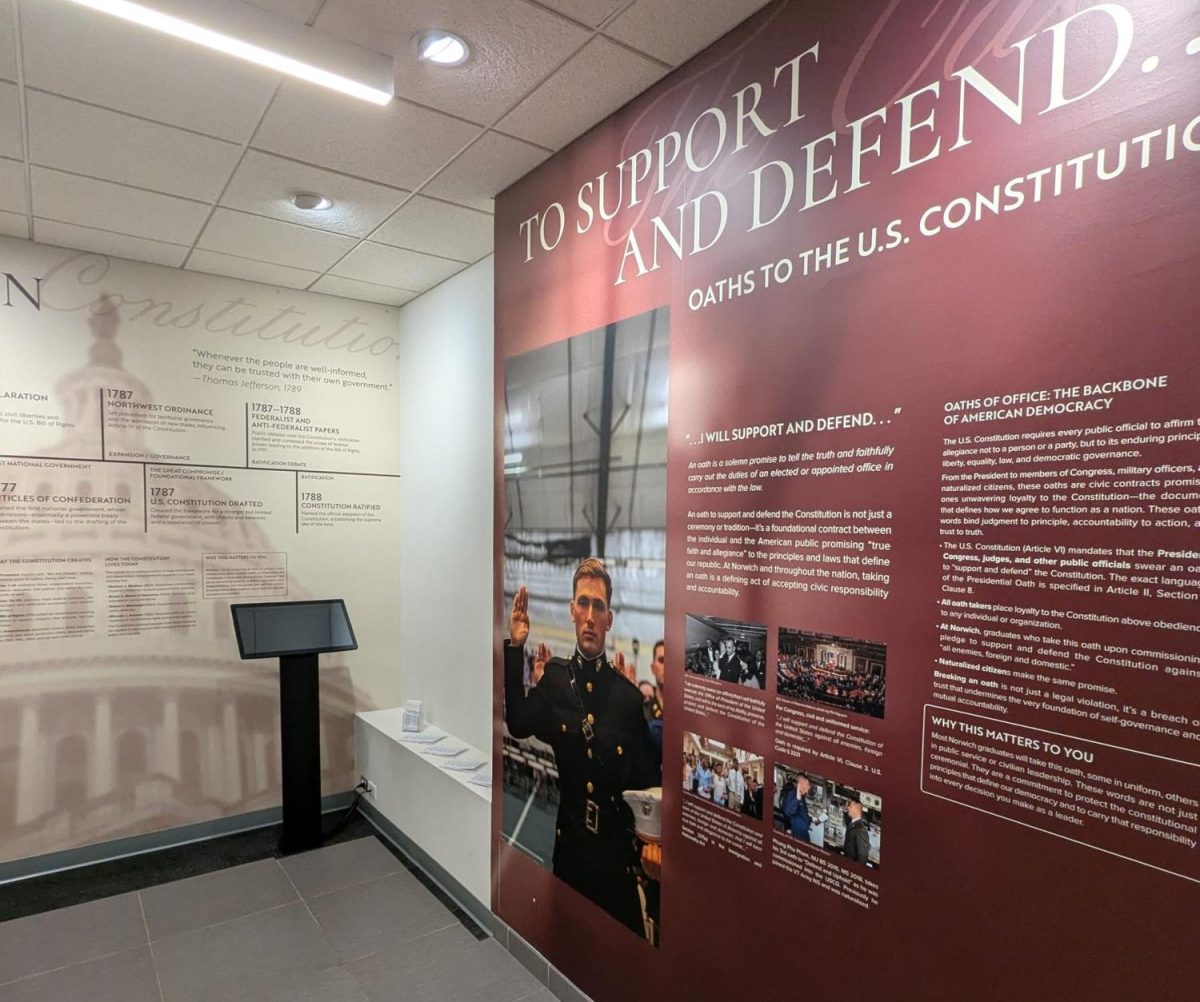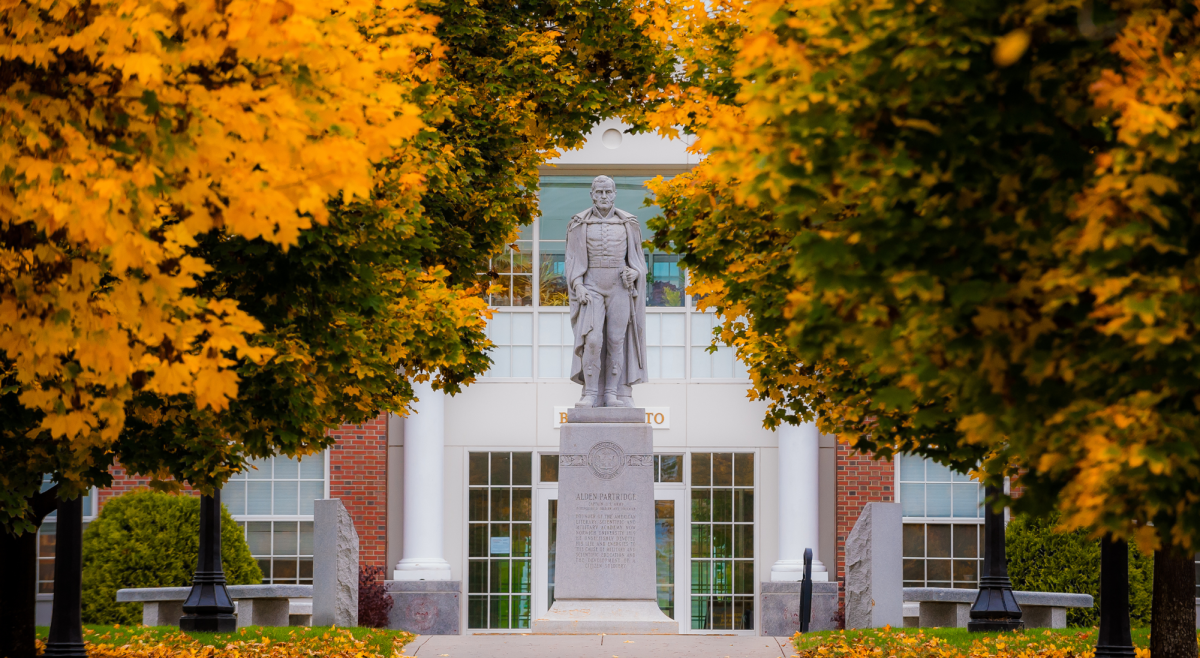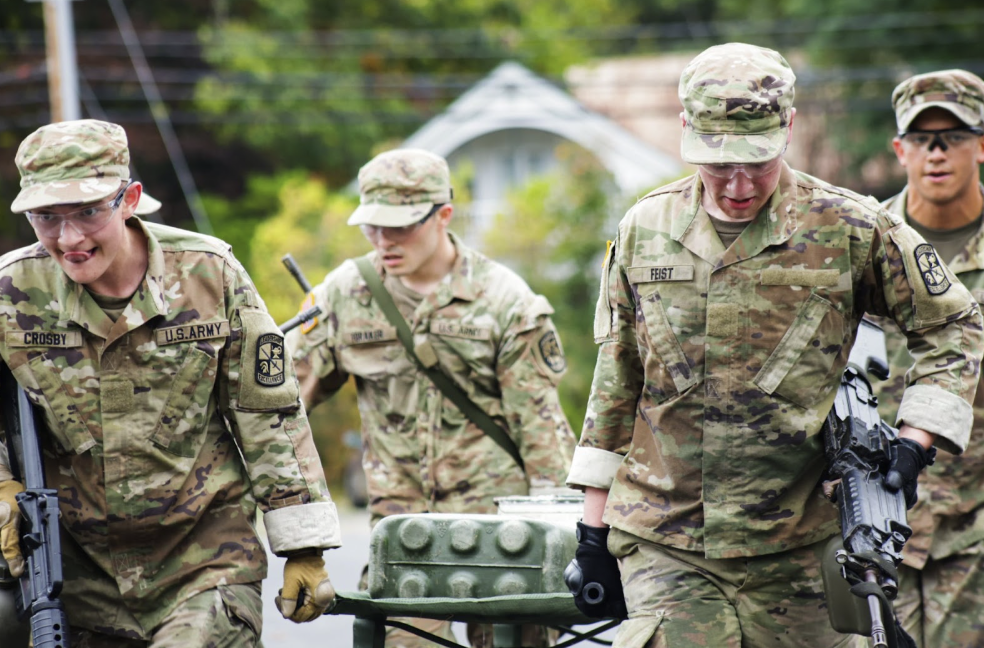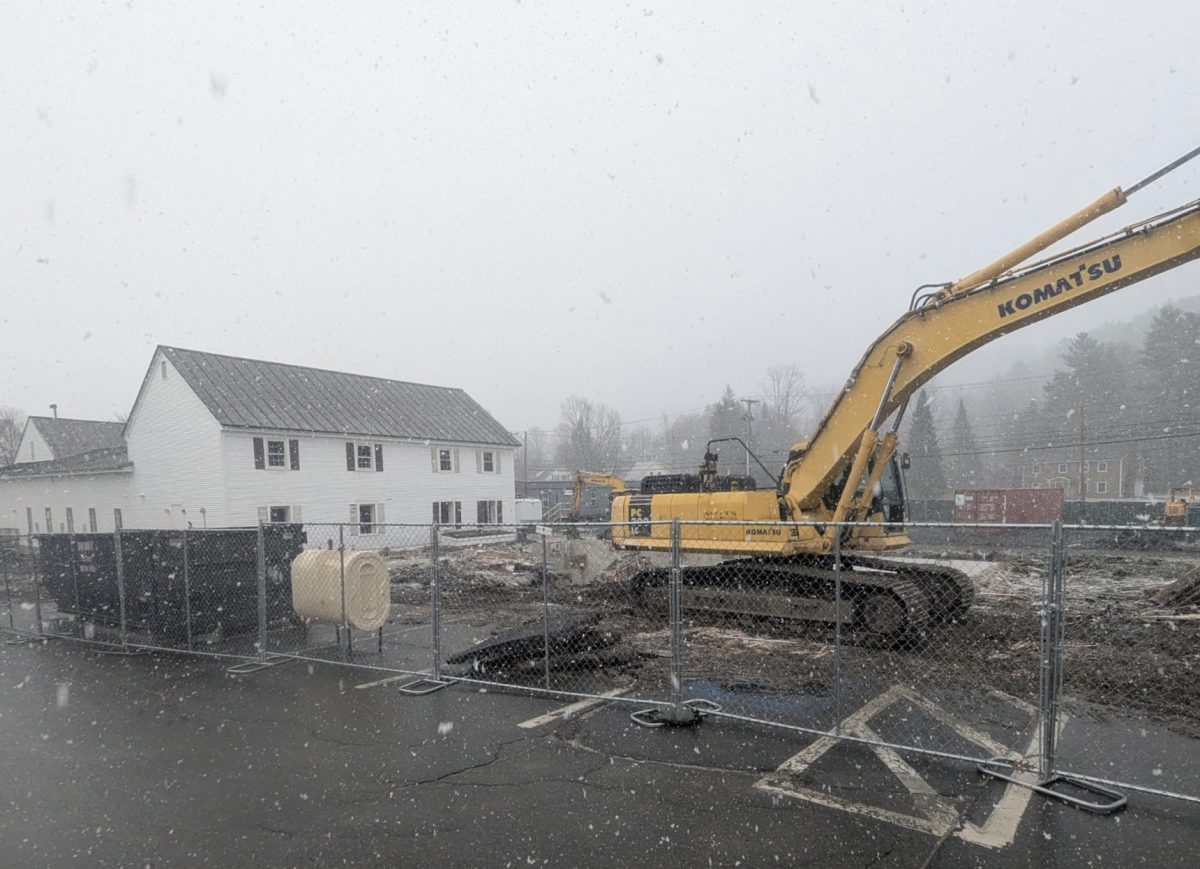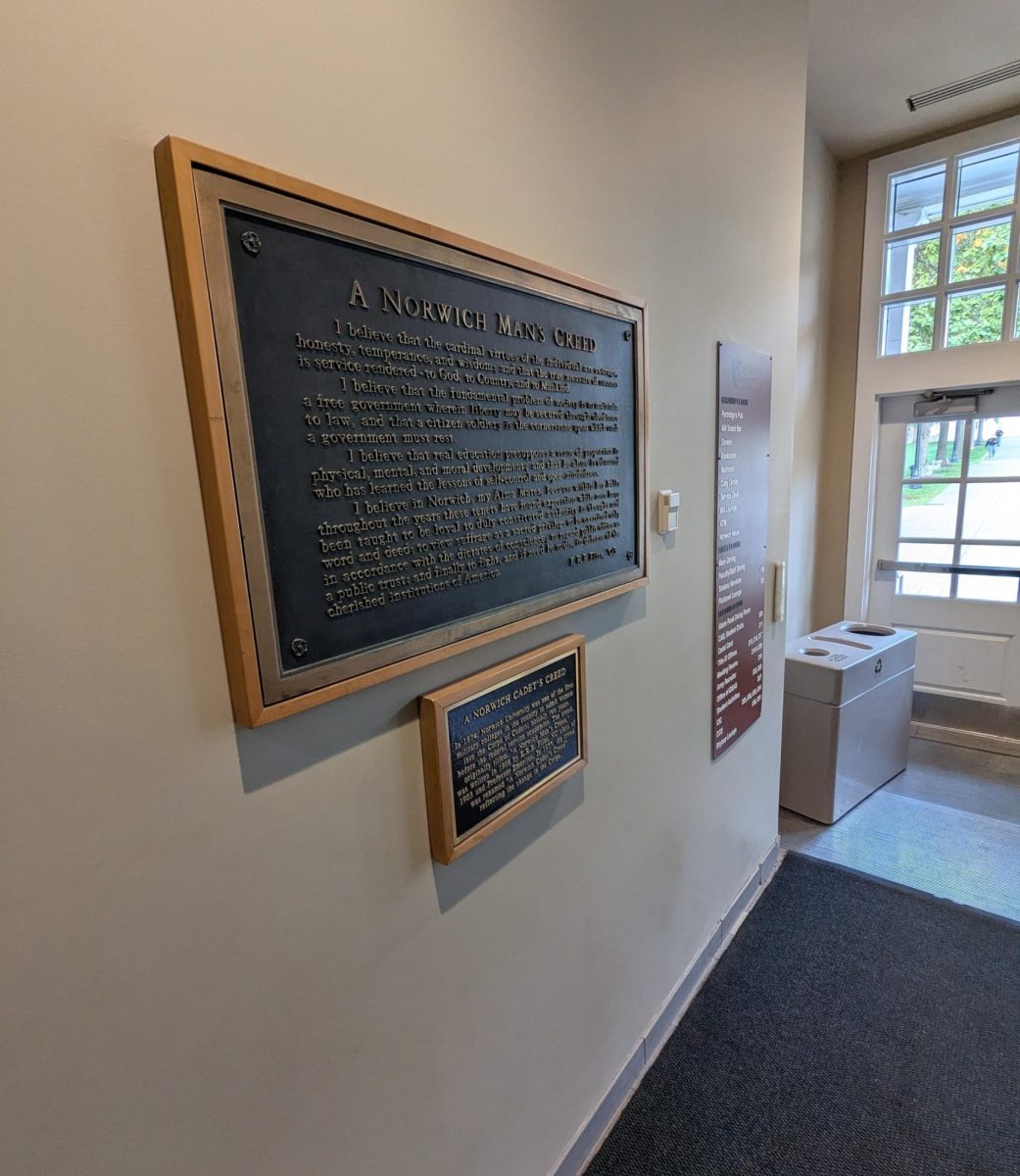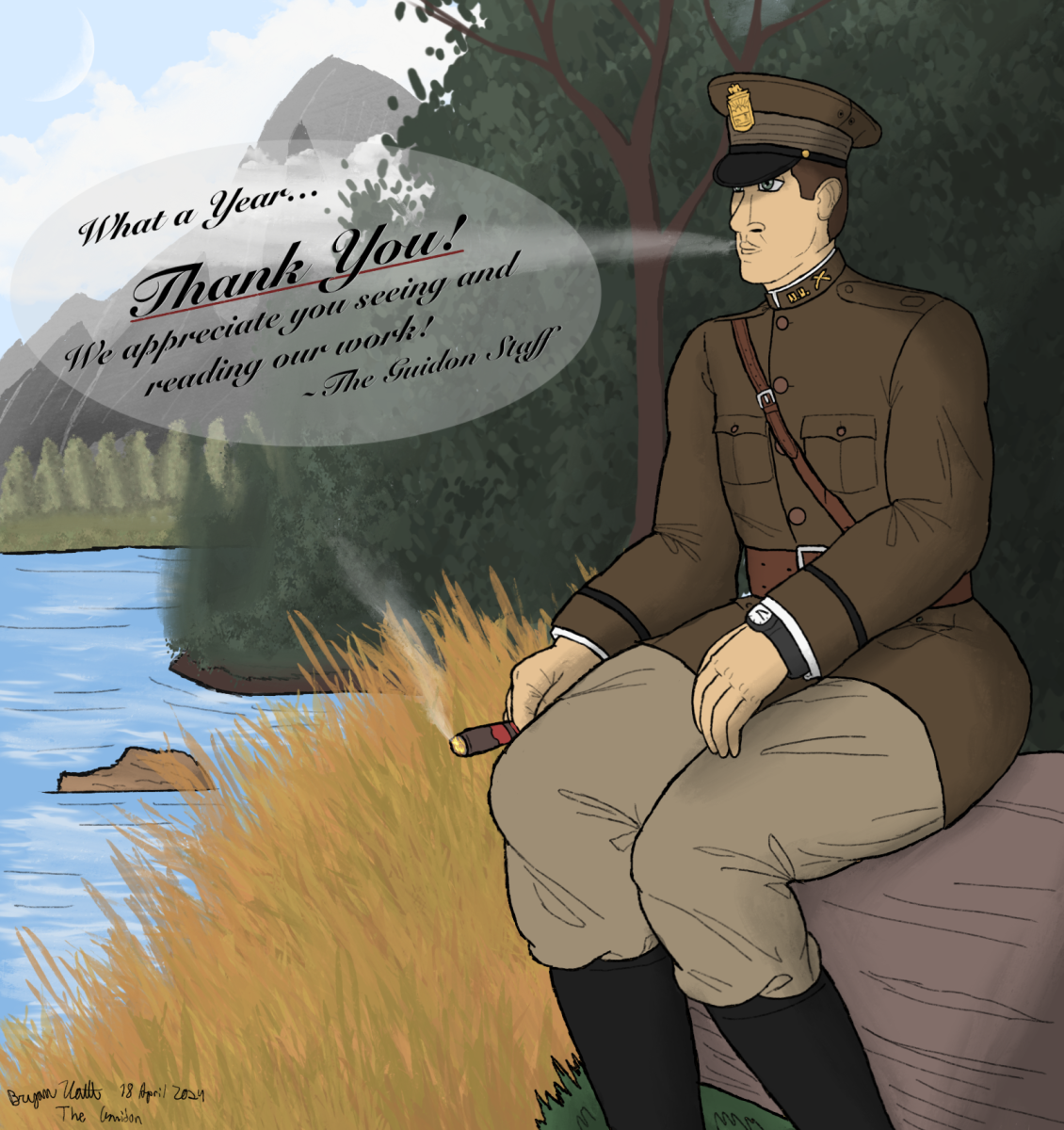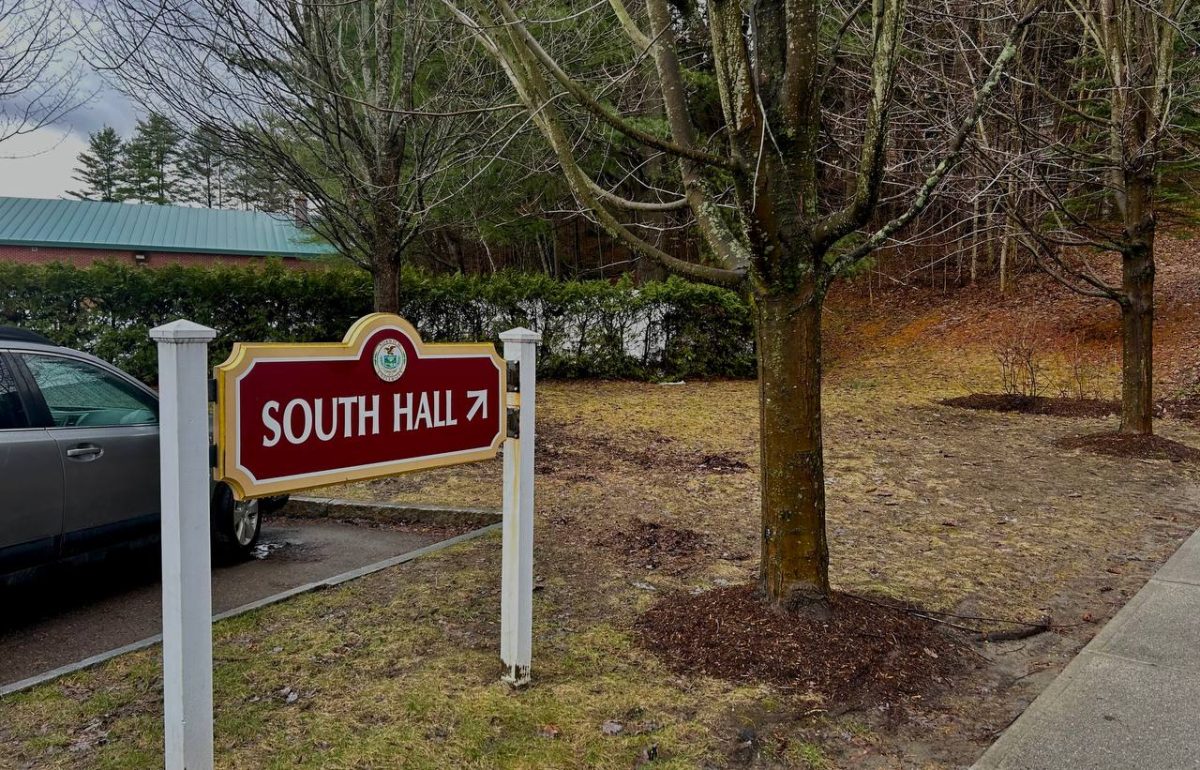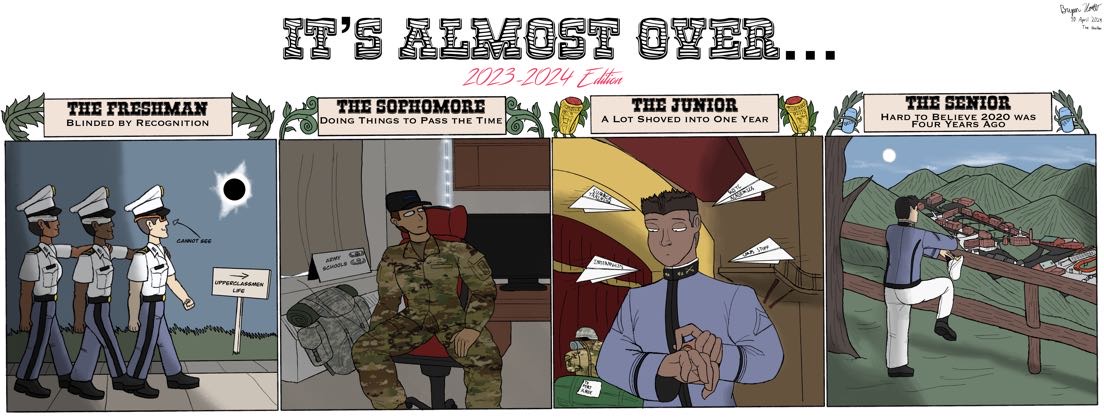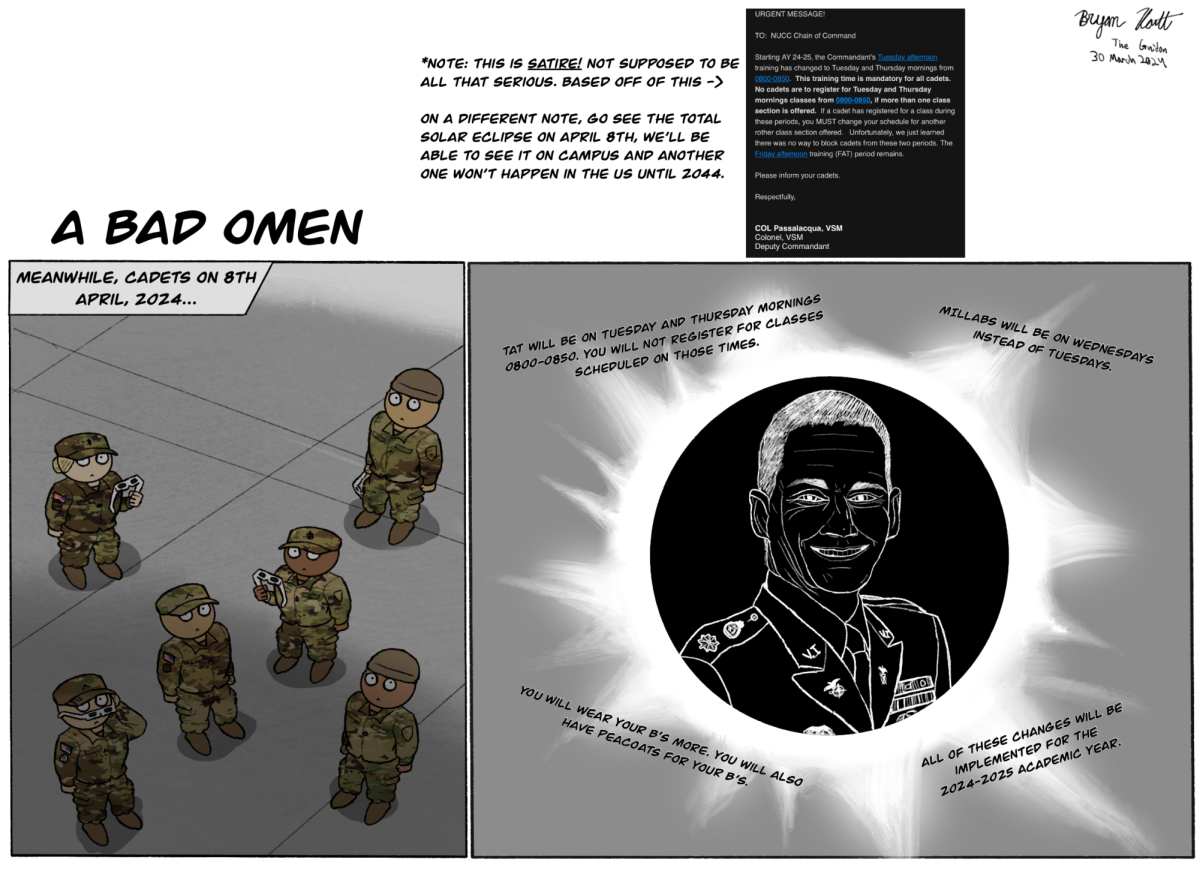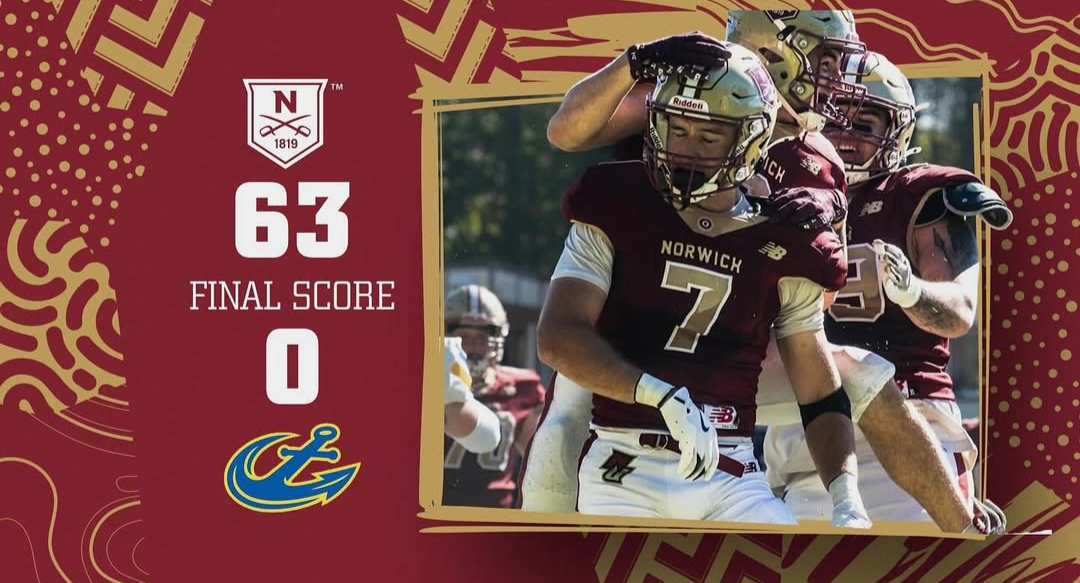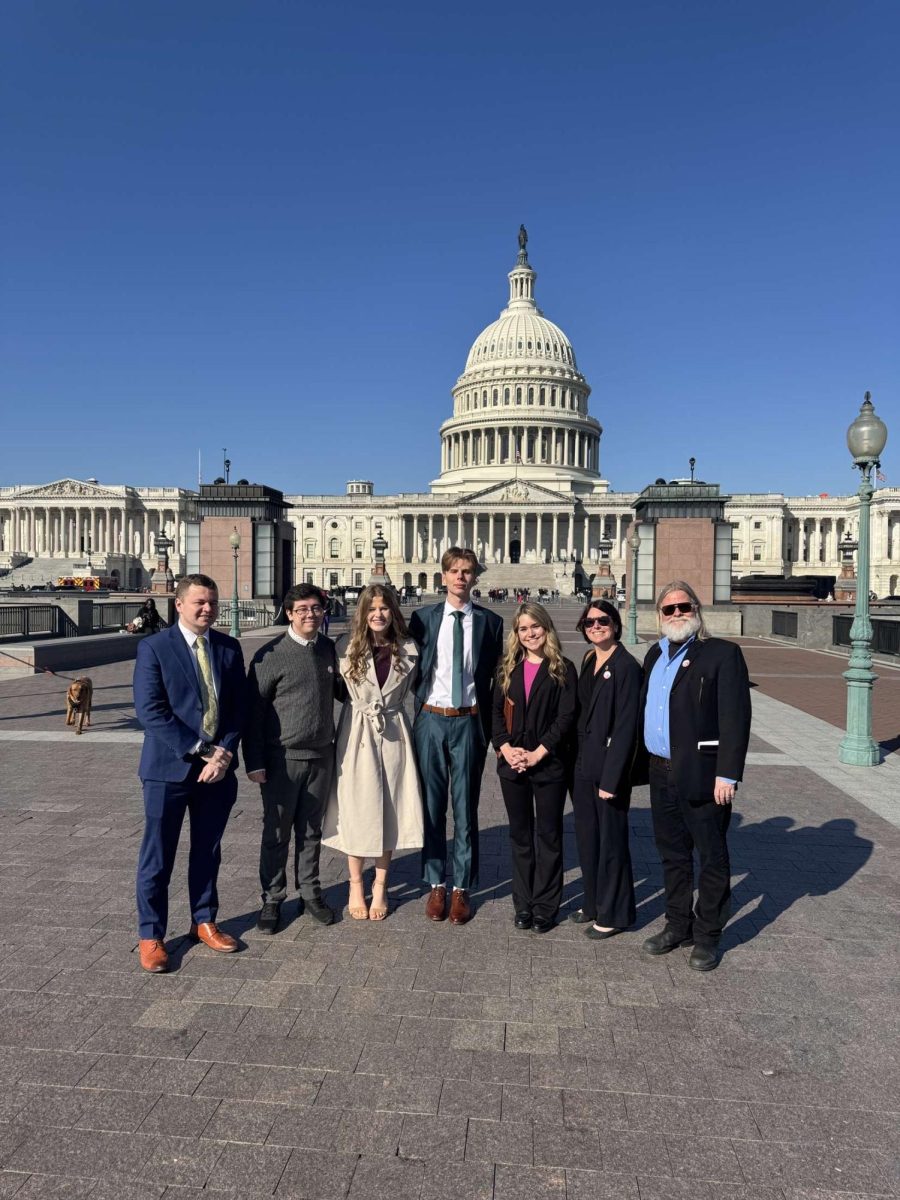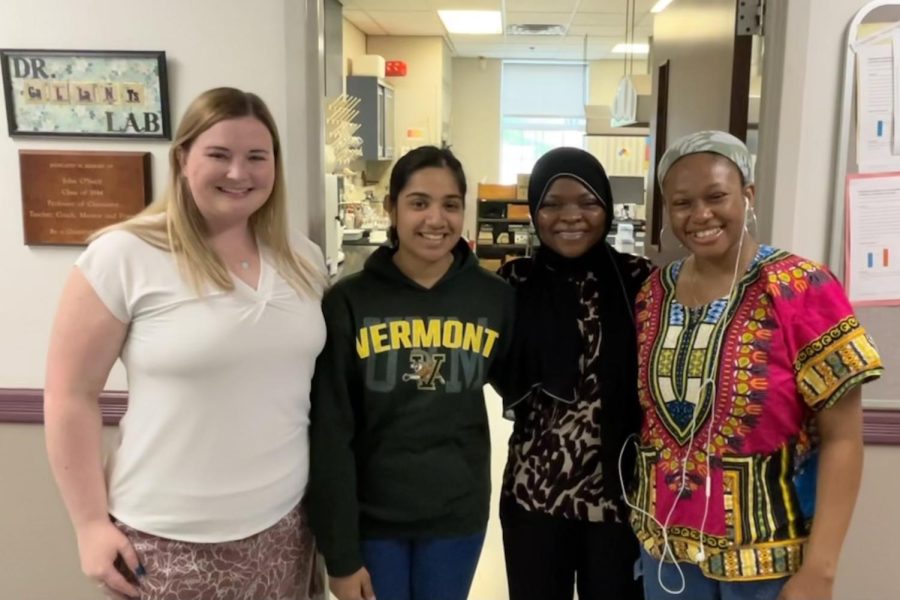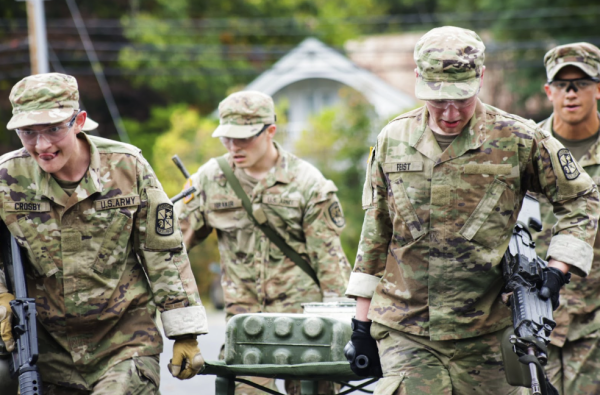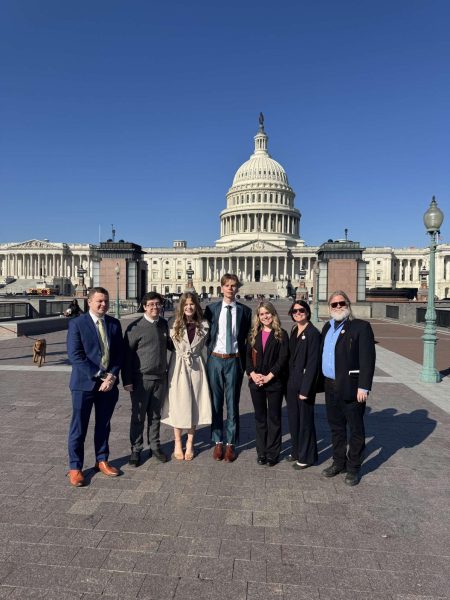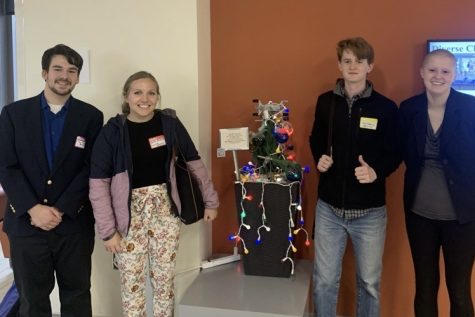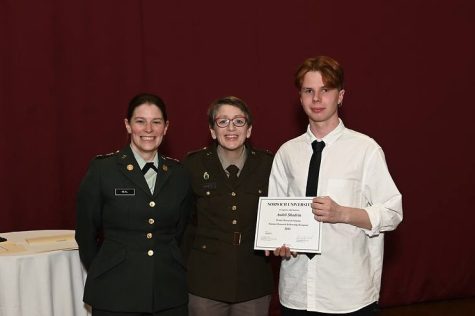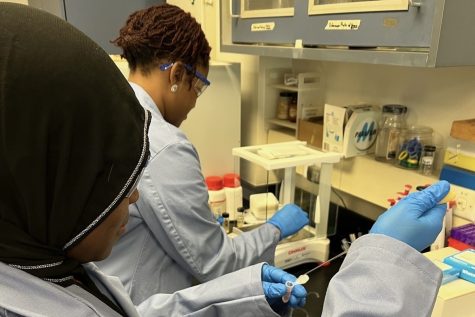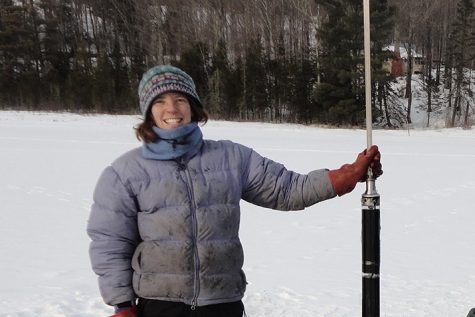NU chemistry professor leads project to develop of method to detect uranium in drinking water
Professor Sarah Gallant with her summer of 2023 research team: Amrutaa Vibho, Rahisa Mohammed, Peace Ogadi (left to right)
My name is Sarah Gallant, and I am an inorganic chemist, but my background is in organometallic chemistry.
Organometallic chemistry is the intersection between organic (carbon-containing molecules) and metallic (metal) chemistry. My graduate research focused on novel catalyst design and luminescent molecules.
Since I started at Norwich, I have been working on the development of a colorimetric method for the detection of uranium in drinking water, and this is what my students are all currently working on!
At Norwich, I teach General Chemistry and Advanced Inorganic Chemistry, as well as Communication in Chemistry. It is through my classes that I typically find and interact with research mentees. Like most researchers, I love the work that I do and talk about it frequently. My lab is still growing, but I tend to recruit students through conversations and interest in the project.
This summer, I have the great opportunity to work with three fantastic students, each working on a different facet of the problem to try to work together to find a solution.
I have mentored through the Undergraduate Research Program before, but this summer I am fortunate to be funded by the Vermont Biomedical Research Network (VBRN). Their generous support has been instrumental in the number of students I have been able to have in the lab over the past year.
Before starting work on this project, like most people, I had no idea how ubiquitous uranium is in the environment, and how chemically toxic uranium can be in very small quantities. Uranium contamination in water is a huge problem in the American Southwest, and it is also a problem here in Vermont!
Our group recently received a well water sample containing uranium concentration above World Health Organization (WHO) and Vermont state guidelines from Chelsea, Vermont.
I find this project exciting because of the potential impacts our group will be able to have on accessibility to water testing, and because we are able to spread the word about this issue and potentially prevent long-term acute exposures to contaminants in well water.
Your donation will support the student journalists of Norwich University. Your contribution will allow us to purchase equipment and cover our annual website hosting costs.
